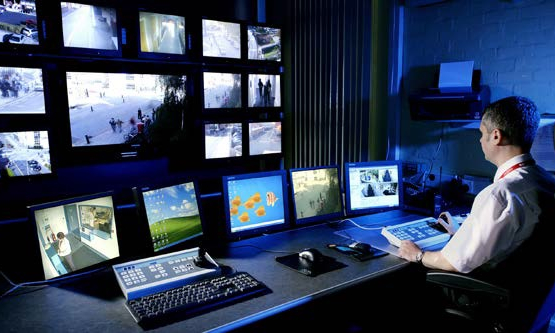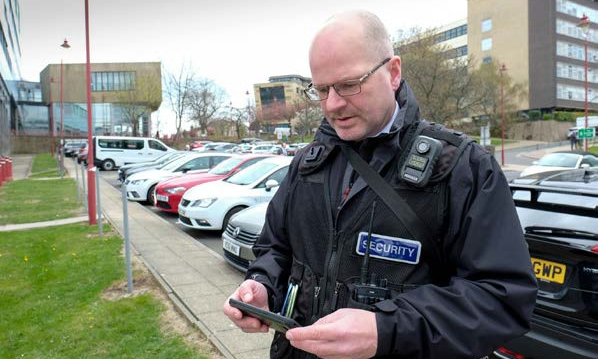Security Services at the heart of safeguarding students, business continuity and risk management
Richard Jenkins, Chief Executive of the National Security Inspectorate (NSI).
UKAS accredited NSI is the UK’s leading, independent third party certification (TPC) body within the fire safety, guarding and security systems sectors, helping to protect homeowners, businesses, public organisations and the general public through rigorous audit of more than 1800 fire safety and security providers nationwide.
Last year PWC reported that security remains unsurprisingly high on the agenda in Higher Education. The ‘threat landscape’, no longer confined to protecting people, assets and buildings from external threats, now takes into account the risk of a home grown and localised terror incident. Knowing who is present in any and all facilities - both academic buildings and halls of residence, and who is moving around the campus (often public access space) has become part of the complex security puzzle.
The findings in the Management of Security Services in Higher Education National Report (https://dera.ioe.ac.uk/11542/1/02_30.pdf), published over 15 years ago, still hold true today. It indicated a conservative estimate of the direct cost of crime to UK higher education was around £40 million in the year 2000-01. It also highlighted a quarter of all students were personally the victim of a crime during their time at university, as much as a third among students in their third or subsequent years, and almost two-fifths amongst postgraduates.
Introducing robust security risk management does not necessarily mean imposing heavy restriction and control over people on campus. It does mean understanding the security risk, and developing a responsible management framework enabling people and institutions to flourish.
Protecting assets and people is at the heart of the security team’s objectives. In an ever-changing world, the security function is critical in mitigating and managing risks. Professional security systems and functions operating to the highest British and International standards deliver assurance they are enhancing security across campus.
The changing nature of effective guarding services
Conferences and training for those working in a security capacity at universities, such as those provided by the University of Salford, also point to the changing nature of the role of security. In particular, the balance between safety and security, and pastoral care. Courses cover a range of areas from supporting students suffering with anxiety or depression, to learning strategies for combatting problems such as sexual harassment on campus. Closer working relationships with law enforcement agencies mean the role of the security officer is fundamental both in protecting an immediate site or premises, and as a source of information often in real time, so safeguarding the community. For example, many security officers across the country, are trained in the national counter terrorism awareness initiative, ACT (Action Counters Terrorism) www.cityoflondon.police.uk/advice-and-support/countering-terrorism/Pages/act-awareness.aspx. The demands on frontline security staff being many and varied.
Security managers are an important focus for guidance issued by the National Counter Terrorism Security Office on managing increased threat levels. This guidance can be used as part of an escalation plan during a rise in the threat level. The crowded places guidance could be of particular use to those managing the security of universities. www.gov.uk/government/collections/crowded-places
Those managing university estates may promote the stay safe film, www.gov.uk/government/publications/stay-safe-film and/or suggest that students and teaching staff download the free Citizen Aid app to enhance their awareness of threats and how to stay safe www.citizenaid.org/home
Smarter guarding security for the best outcome
The safety and security of students and staff spans most areas of a university. Every member of staff has a role directly or indirectly in ensuring its success. Evolving and emerging technologies are enabling organisations to deliver more efficiently and effectively their security objectives, utilising technology and people to better effect. Access control systems and CCTV are good examples where markedly improved functionality in terms of image capture, storage and retrieval and automated alerts based on pre-determined algorithms, free up security staff to focus more on the value-added tasks of analysis and deduction - essential activity in identifying areas of risk and pre-empting threats.
As the technology and the skills required to deliver a security service evolve, it is important the highest standards of professional and technical competence are maintained. For example from a CCTV monitoring and analysis perspective the NSI code of practice for the provision of control room services, NCP 107 Issue 2, is a framework to be applied by operators ensuring the highest standards through specified training requirements. It sets out that operatives new to the role of monitoring and analysis be assessed for competence within three months of employment against relevant criteria relating to the duties they perform. Similarly, codes of practice for Access Control System installers and operators are available from NSI.
Harnessing the latest technology
SOCs (Security Operating Centres) are an example of how the blend of technology and people can work exceptionally well. SOCs gather data and information using a range of services including web crawlers and employ experts in intelligence analysis, operational understanding and communication. SOCs are a valuable asset in the security toolbox, often serving as the communications hub for crisis management, provide informed decision making and resource deployment which speeds the return of the ‘business as usual’ state to the environment as quickly as possible.
Managing risk
The security team is key to the assessment of physical security risk, monitoring, deterrence and prevention of breaches, preparation and readiness to respond, and finally supporting post-incident recovery.
Higher Education can assess to some large degree how security suppliers are able to deliver security in all its guises through the scrutiny of the approvals they hold specifically for the services offered. Operational processes aligned to standards is one thing; demonstrating full compliance another. Organisations serious about their credentials choose to demonstrate their integrity, competence and professionalism to buyers of services, by virtue of a Certificate of Approval awarded by a genuinely independent UKAS accredited Certification Body.
NSI Guarding Approval
To seek and maintain NSI Guarding Gold or Silver Approval requires a security company to sign up to an ongoing audit programme, scaled according to its business size and complexity, ranging from 2 to more than 20 compliance audit days per year led by industry expert auditors.
Audits are tailored according to the specific activities of the business, and may include security guarding, key-holding, canine services, door supervision, close protection and CCTV operations as well as event stewarding. Similarly, NSI also offers Approvals to installers of alarm systems, CCTV and access control systems.
Audits of approved companies include an in-depth assessment of front-line services, management systems, support infrastructure, staff welfare and benefits, and people development. Auditors review a range of best practice criteria such as:
- Security screening of every employee, covering the right to work in the UK, managing risk to your business and protecting your clients.
- Compliance with British and international standards which prescribe key benchmarks ensuring the integrity of client-supplier relationships.
NSI has long adopted a ‘compliance only’ approach. This means that requirements in British Standards are always treated by NSI as mandatory for companies seeking NSI approval- giving buyers reassurance that its Approvals are as challenging as you will find in the security sector. As standards are revised periodically, so businesses are obliged to adapt to the latest versions. The NSI Gold audit also covers the quality management standard ISO 9001 including as it does business risk assessment.
Why choose an NSI approved company?
Choosing a third party certificated organisation – such as an NSI approved company – has significant advantages for buyers. The ongoing programme of compliance testing through impartial, expert audit and assessment demonstrates service providers’ commitment, their openness to independent scrutiny of competency, professionalism and trustworthiness and continual improvement across the business: it signifies they are truly serious about the security of their clients and the people and facilities they protect.




